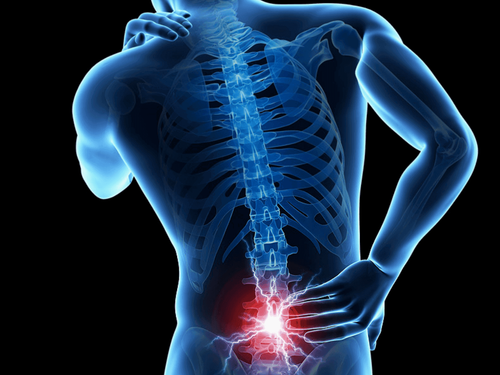This is an automatically translated article.
Due to various health problems, mothers have to take pain relievers during pregnancy. While some pain relievers are considered safe to use during pregnancy, others require the advice of a specialist.
1. What causes pain during pregnancy?
Pain during pregnancy can be due to many different causes such as trauma, infection... Pregnancy-related pain is also common.
If drug side effects are concerned without treatment, persistent pain can affect a woman's physical and psychological well-being such as depression and anxiety. Women should not try to endure pain during pregnancy and lactation as it poses potential health risks.
An issue that is often concerned by people is whether taking painkillers will affect the fetus? Medicines in general and pain relievers in particular have undesirable effects. Taking pain medication during pregnancy needs to weigh the risks and potential of treatment versus no pain treatment for the health of the mother and baby, which requires consultation from a specialist.
If used in appropriate doses, common pain relievers such as Paracetamol, non-steroidal anti-inflammatory aspirin (NSAIDs) and Opioid derivatives are generally relatively safe for mother and baby during pregnancy.

Giải đáp uống thuốc giảm đau có ảnh hưởng đến thai nhi?
2. How to choose a pain reliever during pregnancy?
More than 85% of women take some medication during pregnancy and 50% take pain relievers during pregnancy. In women who are counseled about the use of any medication during pregnancy, it should be emphasized that there is an approximately 3% risk of the baby having a birth defect and about a 15% risk of miscarriage. In fact, taking painkillers during pregnancy is only as popular as vitamins. Commonly used analgesics include Paracetamol (Acetaminophen), Aspirin and Opioid derivatives (psychotropic drugs) at appropriate doses that are not associated with the incidence of fetal defects.
Paracetamol or Acetaminophen, a non-salicylate similar to aspirin in analgesic efficacy, has demonstrated clear efficacy and safety at all stages of pregnancy at standard therapeutic doses. Its established safety profile for use was demonstrated in a recent study of thousands of pregnant women, without an increased risk of birth defects or other adverse pregnancy outcomes. Taking pain relievers during pregnancy, it can be said that Paracetamol is a highly safe option and is recommended as the first choice during pregnancy and lactation. Note, as cold and flu season approaches, it must be ensured that women are aware that many over-the-counter cough and cold medicines may contain Paracetamol and that if taken together with Paracetamol can lead to accidental overdose. Aspirin has potential risks because it inhibits platelet function and can contribute to maternal and fetal bleeding. Aspirin has not been linked to other birth defects. Use of low-dose aspirin during pregnancy has been shown to be relatively safe in large studies. NSAIDs are called non-steroidal anti-inflammatory drugs, which are used to relieve pain through inhibition of the enzyme cyclooxygenase and thus the synthesis of prostaglandins (chemical mediators of pain). These include drugs like Ibuprofen, Naproxen, and Ketorolac. To date, studies have failed to provide consistent evidence of an increase in teratogenic effects in humans or animals following therapeutic doses during the first trimester of pregnancy. However, even short-term use of NSAIDs in late pregnancy can significantly increase the risk of premature tubal closure, and therefore should not be used during the third trimester. Non-steroidal anti-inflammatory drugs (NSAIDS) should be avoided during pregnancy, unless clinically indicated, such as for severe migraine occurring during the first trimester and should not be used after 30 weeks of age. pregnancy due to increased risk to the fetus. However, NSAIDS are safe to use during breastfeeding. Opioids are morphine-like agonists, meperidine-like agonists, and synthetic opioid analogs (eg, tramadol). These drugs have been used by pregnant women in therapeutic doses for many years and have not been associated with an increased risk of major or minor birth defects. However, it is important to note the important difference between Codein and Dihydrocodeine, that Dihydrocodeine is safe to take during breastfeeding but should be avoided. This is important because some women may need opioids for the first few days after giving birth. Opioids should be taken only on the advice of your doctor, but be aware that all opioids are equally safe during pregnancy. Before taking any medication while pregnant or breastfeeding, women should consult a pharmacist, obstetrician, midwife, or general practitioner. The lowest effective dose of any pain reliever (even those bought without a prescription) should be used for the shortest possible time to minimize any risks to mother and baby.
Please dial HOTLINE for more information or register for an appointment HERE. Download MyVinmec app to make appointments faster and to manage your bookings easily.













